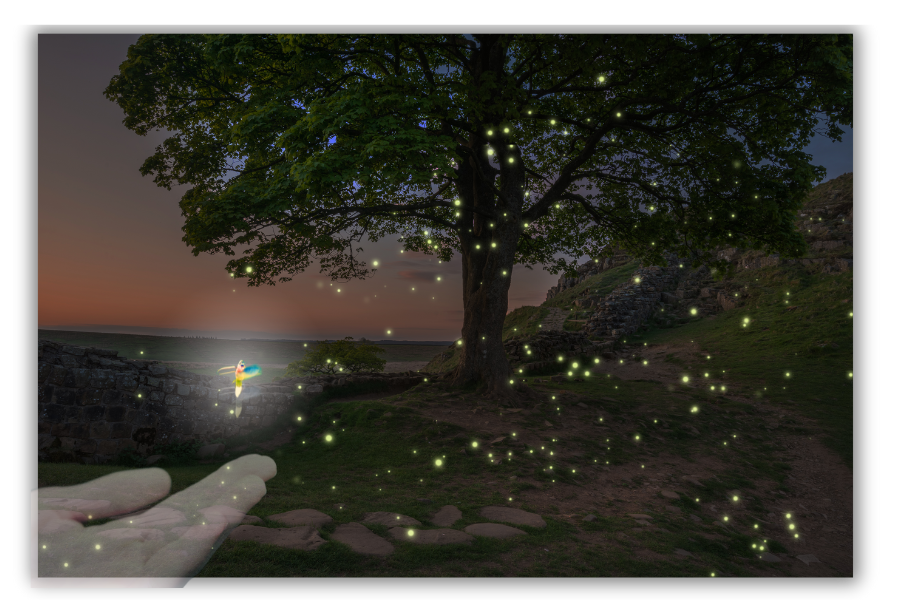Luminosity
The art of reclaiming wonder by Jena Ball
Thanks to a post by a nature-loving friend who asked that we approach the natural world like a curious child, I tumbled down a rabbit hole of “whys,” “wherefores," and “what ifs,” only to emerge with a lot of boring facts and a headache.
Once I’d gotten over my annoyance, I realized that the problem was not my friend or his suggestion but my own assumptions about how to go about asking and answering questions. You see I was well schooled in the fine art of detachment and denial. Instead of being encouraged to pursue what interested me most - unearthing, drawing, and telling stories about the wondrous creatures I encountered every day (I was obsessed with red ants one year), I was escorted to the library. There, I was forced to sit with words confined to pages and imprisoned between hardbound covers. A fussy librarian, with bifocals that gave her bug-eyes, taught me how to “look up” information about nature.
Do I need to tell you how I responded to taxonomy, to the discovery that Audubon - supposedly the one of the greatest bird lovers of all time - employed people to shoot, mount, and display “freshly killed” birds so he could paint them? And don’t get me started on scientific journals which detailed the systematic abuse of animals for “medical” purposes. So I did what any sensitive, empathic child would do - I withdrew from the reference section and hid amongst stacks of fantasy, sci-fi, and fiction books.
I hobnobbed with writers like Ray Bradbury, C.S. Lewis, and Madeleine L’Engle. I drank tea with the Mad Hatter and March Hare and sat down with Ursula K. LeGuin to ponder what life would be like on a planet where gender was fluid. But the authors I loved most were those who took me into the hearts and minds of other species and invited me to wonder about their lives.
Wonder.
It took me awhile to admit this was the problem. I’d somehow misplaced my wonder and I wanted it back. Two things started me on the road to recovery. The first was this video by Sir Ken Robinson who dedicated his career to recalling adults to the child in themselves. Below is a story he loved to tell (click on the image below that to hear the full presentation).
“I heard a great story recently -- I love telling it -- of a little girl who was in a drawing lesson. She was six, and she was at the back, drawing, and the teacher said this girl hardly ever paid attention, and in this drawing lesson, she did. The teacher was fascinated. She went over to her, and she said, ‘What are you drawing?’ And the girl said, ‘I'm drawing a picture of God.’ And the teacher said, ‘But nobody knows what God looks like.’ And the girl said, ‘They will in a minute.’” - Sir Ken Robinson
The second was a firefly who collided with my forehead as I was walking home at dusk a few days ago. We were both startled and recoiled from the unwanted contact. But he recovered quickly. Within seconds he was back to using his magic light emitter to tell the world - and potential mates - how truly magnificent and worthy of sex he was. Wikipedia (the digital version of the reference books I consulted as a child) can tell you all about bioluminescence but nothing about the wonder these tiny creatures evoke or the longing I feel when listening to Orit Peleg talk about firefly synchronization as both a “dance of light, and a “romantic morse code.”
However, the thing that continues to intrigue me most are the emotions, memories, and reflections that fireflies evoke in us. Below are three haiku about fireflies I love.
“fireflies
less light than I want
more than I need” - Red Dragonfly
“illuminating
the silence between us
firefly” - Swist
“fireflies
forgiving you
on and off.” - Frogpond
By Jena Ball
Visit Pass Along Songs and Whales in My Backyard to read more of her work.
So of course you know what I am going to ask. Do you have a haiku, story, drawing, or poem you’d like to share about fireflies? If so, jot them down and send along to AgelessMindProject@gmail.com.
And, if you’d like to know more about our little nature journaling project, please visit: Nature Journaling Day One for instructions.
Previous can be found below.
Copyright 2024 by Ageless Mind Project. All Rights Reserved.
Please consider supporting our mission, as a 501(c)3 nonprofit organization, to make science-based innovative activities that promote healthful aging available to as many people as possible through our online programs.
To learn more about AMP visit: https://agelessmindproject.org






I think we all need to get back in touch with our inner child, and rediscover our sense of wonder